Word of Motorola's new project was reported by Information Week, which attributed "a source familiar with the matter."
While the company issued an email statement insisting that "Motorola Mobility is committed to Android as an operating system," it did not deny that it was also working on its own competing mobile operating system project.
The report also cited Deutsche Bank analyst Jonathan Goldberg, who said, "I know they're working on it. I think the company recognizes that they need to differentiate and they need options, just in case. Nobody wants to rely on a single supplier."
Goldberg said the company was working to be "financially disciplined" about the new project so as to avoid spooking investors with the idea that the company was "going back to the Motorola of old where they're working on 50 million operating systems at once."
Motorola hiring mobile OS engineers
Motorola has hired developers from Apple and Adobe, including Gilles Drieu, its VP of software engineering, who until last spring headed Apple's rich media and applications group.
The company has also hired Sean Kranzberg, Adobe's former senior manager of Flash engineering, to serve as a director of engineering along with Benoit Marchant, identified a former manager of JavaScript development at Apple.
Motorola formerly worked with the LiMo Foundation (a partnership of companies developing Linux mobile distributions) before abandoning it to back Android. Earlier this year Motorola appears to have acquired Azingo, another LiMo Foundation member company building a Linux-based mobile platform making use of a WebKit browser, a web-based runtime, a Flash runtime, and web development tools.
Motorola's co-chief executive Sanjay Jha also noted last spring during the company's earnings calls that "I’ve always felt that owning your OS is important, provided you have an ecosystem, you have all the services and you have an ability and the scale to execute on keeping that OS at the leading edge. And I continue to believe that at some point, if we have all of those attributes, that owning our own OS will be a very important thing."
Who's Xooming whom
The report noted that Motorola's efforts to develop an alternative to Android may relate to the uncertainty of Oracle's ongoing patent and copyright claims against Google's mobile operating system, which is modeled upon aspects of Java ME.
The source behind the news also said "Google is shooting itself in the foot," citing problems related to Android's platform fragmentation, issues with product differentiation among hardware makers, and "issues related to Google's support for its partners."
Google first partnered with HTC to deliver early Android phones before shifting to Motorola to exclusively launch Android 2.0 just as Verizon's "Droid" branded focus on Android phones took off in late 2009. The company then went back to HTC to ship the first Google-branded Nexus One model, then abandoned it to release a Nexus S in partnership with Samsung.
Google has most recently promoted Android 3.0 with Motorola's Xoom, but it is also working to accommodate new tablets from Samsung, Toshiba and Acer, some of which bundle differentiated layers of software to set each makers' tablet products apart.
Everyone's on Plan B
HTC has long supported both Android and Microsoft's Windows Mobile and now Windows Phone 7, and has also launched plans to deliver simpler new BREW-based embedded phones that can undercut the price of Android models. Samsung has also launched its own Bada mobile operating system as an Android hedge.
While most Android licensees are current or former Windows Mobile/WP7 makers, including LG, Samsung and Sony Ericsson, other major companies seeking to expand or solidify their standing in the smartphone market have simply ignored Android to pursue an integrated model more like Apple's iPhone.
That list includes HP, which launched its own webOS smartphones and tablets based on its acquisition of Palm; Nokia, which has closely partnered with Microsoft rather than licensing Android; and RIM, which is rumored to be experimenting with an Android 2.x compatibility layer for its new PlayBook tablet but has actually based it upon its acquisition of QNX rather than standardizing on Android, ostensibly due in part to fears of Oracle's Android claims.
Android enthusiasts commenting on the news expressed bitter disappointment with Motorola, with one complaining, "May they rot with their own OS," while another observed, "if some of these execs knew how stupid they sound to the tech world they’d be embarrassed. Can they not grasp the concept of open source? And then ironically the OS they bought is built on Linux just like Android."
 Daniel Eran Dilger
Daniel Eran Dilger



-xl-m.jpg)


-m.jpg)





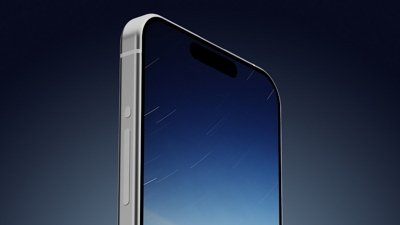
 William Gallagher
William Gallagher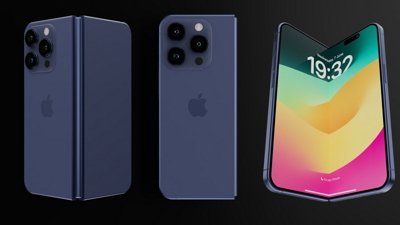
 Amber Neely
Amber Neely
 Andrew Orr
Andrew Orr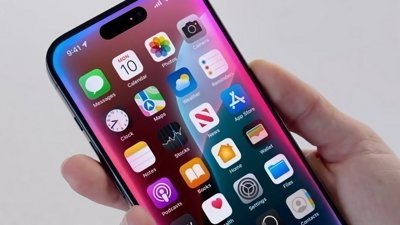


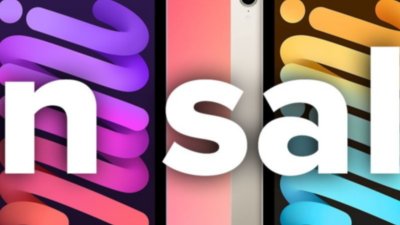
 Christine McKee
Christine McKee
 Chip Loder
Chip Loder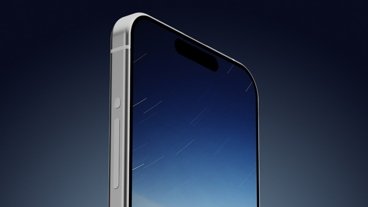







104 Comments
Let the fragmentation begin! What is kind of funny is that for decades Apple was the only major hardware reseller owning its own OS. The conventional wisdom has been better to use Microsoft but build your own box. For a while it was looking like Google had supplanted the MS role. Now all of a sudden its hip to have your own OS. If this trend continues Apple's dominance will only grow IMO.
Motorola Mobility, which has been Google's only major licensee fully committed to Android, is now working on a new web-based mobile operating system apparently intended to give it more control over its future, enraging Android advocates anew just weeks after Nokia opted against adopting Google's mobile OS.
Seriously, how much of an Android fanboi do you have to be to get "enraged" when Motorola develops new hardware for an additional platform? It's not like Google is exactly being monogamous when it comes to their hardware partners: first HTC gets exclusive access, then it's Moto, then back to HTC, now it's Samsung? Moto is just demonstrating to Google that they have options.
Imagine if Dell PCs got first access to Windows 7? With HP, Acer, etc. only getting to ship the same OS weeks or months later?
What does the comment about the os they bought is on linux, same as android. I think windows mobile is silverlight on top of windows ce, am I wrong on that?
I know iOS is unix, and android is a vm on top of Linux, and I believe hp web os is Linux based as well though I'm not sure how much Linux actually comes through to the user level.
Of all the major phone operating systems I think iOS is closest to being a unix distribution.
Android enthusiasts commenting on the news expressed bitter disappointment with Motorola, with one complaining, "May they rot with their own OS," while another observed, "if some of these execs knew how stupid they sound to the tech world they?d be embarrassed. Can they not grasp the concept of open source? And then ironically the OS they bought is built on Linux just like Android."
It just cracks me up when I read arrogant fandroid statements like this. Personally, I think that Motorola has a very steep uphill climb with their ideas.
The reason that iOS is so hugely successful is that it brought computing the the masses in an easy-to-use way, and backed it up with quality hardware.
The reason the XOOM hasn't taken off (i.e. failed), along with the Galaxy is that they marketed it to folks like the fandroid critics above and (once-again) realized in a very painful and expensive way that tech-heads, geeks, and nerds have zero ability (with over-inflated egos) to decide what is best for the consumer.
Android is fragmenting. Get over it. The hardware that's running honeycomb in their production products is still beta to say the least. These wads clamoring about the superiority of XOOM/Honeycomb just has me ROTFL defending hardware that's not even working out of the box, or in the case of the new Samsung "iPad" killer, it's not even a unit that powers on but for some reason, the fandroids are wetting their beds saying how great this vaporware product is.
I give motorola credit for trying to not depend solely on Android. In the end, I think it's futile as it will be yet another OS in what's becoming a crowded market.
I will sit happily on my sofa, eating popcorn in preparation to watch this OS/Hardware battle.
Motorola's co-chief executive Sanjay Jha also noted last spring during the company's earnings calls that "I?ve always felt that owning your OS is important, provided you have an ecosystem, you have all the services and you have an ability and the scale to execute on keeping that OS at the leading edge. And I continue to believe that at some point, if we have all of those attributes, that owning our own OS will be a very important thing."
Jha's statement is the flip side of the famous Alan Kay line that Steve Jobs sewn into the very heart of Apple at the beginning: ?People who are really serious about software should make their own hardware.? It's fascinated me that more tech companies haven't followed that philosophy over the years rather than taking the Microsoft approach.
Android enthusiasts commenting on the news expressed bitter disappointment with Motorola, with one complaining, "May they rot with their own OS," while another observed, "if some of these execs knew how stupid they sound to the tech world they?d be embarrassed. Can they not grasp the concept of open source? And then ironically the OS they bought is built on Linux just like Android."
I'll assume that "Android enthusiasts commenting on the news" are tech geeks and not average consumers with Android devices who probably don't care that much; they just want products that work reliably. That second Fandroid quote is one of the nerdiest things I've ever read. I can practically see the guy pushing his taped-together glasses back in place while he flips out.